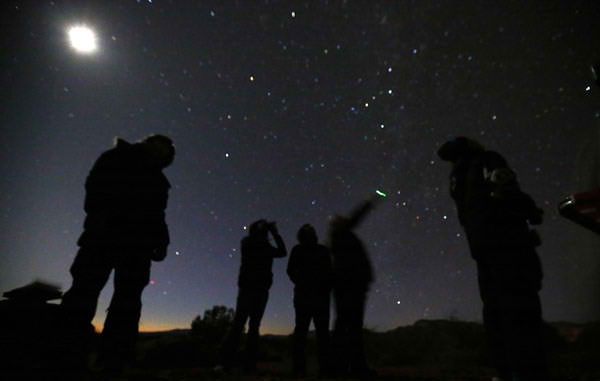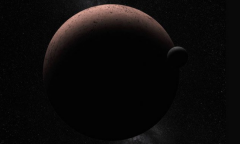By Lynn Palec, | May 06, 2016

Planets and space enthusiasts around the world will be pleased to learn about a rare cosmic event that will unfold this month of May.
Planets and space enthusiasts around the world will be pleased to learn about a rare cosmic event that will unfold this month of May. The last time this cosmic event occurred was at least a decade ago.
Scientists claim that Mercury, the first planet in the solar system, will cross the front disc of the sun on May 9. This cosmic event is also known as a transit and will be visible all across the North America.
Like Us on Facebook
Later this month, another rare cosmic event will transpire. Mars, the fourth planet in the solar system and a considered as Earth's neighbor, will make its closest approach to Earth since 2005. What is even more interesting is that Venus will have a magnitude of negative two once it is nearest to Earth.
Mars will be closest to Earth on May 30. Scientists estimate that the Red planet will be around 46.8 million miles away from Earth. Using a telescope, Marks will display a disc of about 0.0051 degrees across, this means that it will appear larger than it has since it made its last close approach back in 2005. Using a 4-inch telescope with its magnifying power maxed at 100 will be powerful enough to provide a good view of the disc of Mars, according to Space.
In comparison, a full moon has a magnitude of negative 13, Venus has a magnitude of bout negative four and Jupiter has a magnitude of negative two. Space experts claim that the lower the magnitude, the brighter the object will be.
Earlier this month, Jupiter is the only visible planet at dusk. However, as the month continues to progress, Mars slowly rises progressively after sundown until it is finally evident in the lower east-southeast as the evening twilight fades.
Following just close behind Mars is the zero-magnitude Saturn, which is not far from the first-magnitude star Antares in the constellation of Scorpius. During dawn's early light, the eastern sky will be completely empty, as Venus will be completely invisible due to the sun's solar glare.
According to Science Alert, this rare cosmic event only happens 13 times every 100 years. The next thing this will occur will be in 2019, and after that, and 2032.
-
Use of Coronavirus Pandemic Drones Raises Privacy Concerns: Drones Spread Fear, Local Officials Say

-
Coronavirus Hampers The Delivery Of Lockheed Martin F-35 Stealth Fighters For 2020

-
Instagram Speeds Up Plans to Add Account Memorialization Feature Due to COVID-19 Deaths

-
NASA: Perseverance Plans to Bring 'Mars Rock' to Earth in 2031

-
600 Dead And 3,000 In The Hospital as Iranians Believed Drinking High-Concentrations of Alcohol Can Cure The Coronavirus

-
600 Dead And 3,000 In The Hospital as Iranians Believed Drinking High-Concentrations of Alcohol Can Cure The Coronavirus

-
COVID-19: Doctors, Nurses Use Virtual Reality to Learn New Skills in Treating Coronavirus Patients











